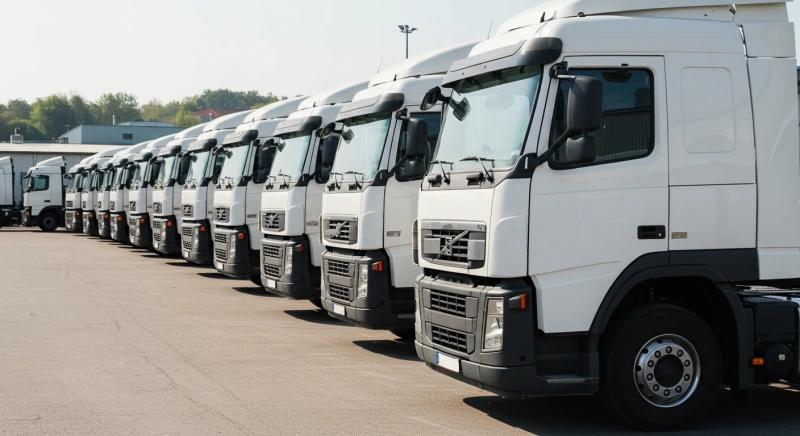
Things to consider when creating a fleet are the rules that both car rental companies and companies with a widespread service network must follow when creating a fleet. The reasons and results that we will explain shortly include factors that will help you follow a profitable path when purchasing and make it easier for you to sell after purchasing and when necessary.
Vehicle fleets can range from three vehicles to thousands of vehicles, depending on the companies' earnings, business situation and needs. Saving this is a decision that must be made by you, taking into account the relevant criteria.
So, what should be taken into consideration when creating a fleet?

Let's find the answer to this question together...
-
Determining the Number
You should determine a number by considering your company's business situation and needs. In the process of determining the number for a static company, you can easily determine a number by comparing a list of employees who need to drive and the company's own resources. For car rental companies, the situation is a little more complicated. High season, special days and serviced area dynamics should be analyzed with past period data and a decision should be made.
2.Places of Use
Another thing to consider when creating a fleet is where and how the vehicles to be purchased will be used. Will they be used in the city or intercity, on asphalt roads or on rough terrain? Providing healthy answers to these questions will also be beneficial in determining the type of vehicle you will prefer when creating a fleet.
3. Tracking System and Required Personnel
After the fleet creation process, during the active usage phase, your vehicles should be monitored for maintenance-repair, accidents and routes. There are advanced software offered to rent-a-car companies for this purpose. Similarly, it is also possible to obtain vehicle tracking programs.
Regardless of whether you are a rent a car company or a company from a different sector, it is essential that your staff who use the tracking software and follow the processes are trained on this subject.
4. Use of Tools
If you are embarking on a serious business such as setting up a fleet, you probably want to use these vehicles as efficiently as possible. However, in order for your business to run smoothly, it is important that the vehicles are used efficiently and not out of service. Otherwise, you may suffer both financial and moral damage.
5. Insurance
You should have both compulsory traffic insurance and comprehensive insurance for all vehicles in your fleet. These are valuable measures to alleviate or reduce to zero the consequences of traffic accidents that occur very frequently in our country.
6. Cost Calculation
Things to consider when creating a fleet One of them is to identify the vehicles with low and high costs in the variety of vehicles in your fleet and to take protective measures accordingly. In this way, you will have great ease in calculating your costs.
7. Information
It would be beneficial to regularly inform vehicle users about the fixed expenses and costs of the vehicles in your fleet.
8. Fuel Prices
Aside from the things to consider when creating a fleet, you should also consider the fuel costs that will occur when you start using it. Fleet-owning companies can make various agreements with fuel companies other than normal pricing and thus save on fuel costs, which are the most important of their expense items.
9. Renewal Process
Company managers know that the real profit in business is made during the purchasing process. For this reason, you may want to make an agreement with the brand you choose when creating your fleet. Agreeing on various parts of the agreement that include the renewal process will also allow you to save money during the renewal process.
Perhaps the most crucial part of this article, which we touch upon the issues to be considered when creating a fleet, is undoubtedly the management of processes related to your vehicle fleet with software support. Titarus is specially designed for you to manage the most crucial processes of your vehicle fleet. If you wish, you can contact us for more detailed information.























